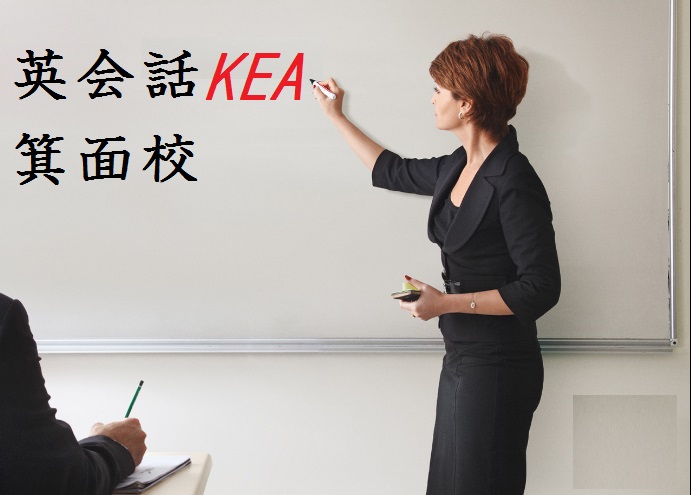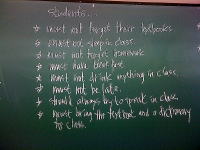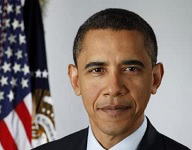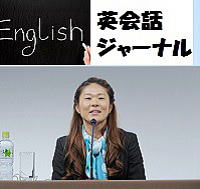箕面.の英会箕面.の英会話教室.:英会話.KEA.−箕面. 小野原、彩都. 茨木話教室.:英会話.KEA.−箕面. 小野原、彩都. 茨木
箕面、小野原、彩都、茨木.の.英会話スクール.です
・個人レッスンが中心です ・講師は日本人!
・英検、TOEIC、ビジネス英語の特別授業も好評です。
ギャラリー
Text of President Obama’s Speech in Hiroshima, Japanお知らせ
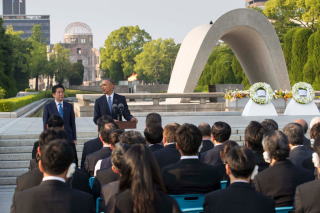
Seventy-one years ago, on a bright cloudless morning, death fell from the
sky and the world was changed. A flash of light and a wall of fire destroyed a
city and demonstrated that mankind possessed the means to destroy itself.
Why do we come to this place, to
Their souls speak to us. They ask us to look inward, to take stock of who
we are and what we might become.
It is not the fact of war that sets
The world war that reached its
brutal end in
In the span of a few years, some 60
million people would die. Men, women, children, no different than us. Shot,
beaten, marched, bombed, jailed, starved, gassed to death. There are many sites
around the world that chronicle this war, memorials that tell stories of
courage and heroism, graves and empty camps that echo of unspeakable depravity.
Yet in the image of a mushroom cloud
that rose into these skies, we are most starkly reminded of humanity’s core
contradiction. How the very spark that marks us as a species, our thoughts, our
imagination, our language, our toolmaking, our ability to set ourselves apart
from nature and bend it to our will ? those very things also give us the
capacity for unmatched destruction.
How often does material advancement
or social innovation blind us to this truth? How easily we learn to justify
violence in the name of some higher cause.
Every great religion promises a
pathway to love and peace and righteousness, and yet no religion has been
spared from believers who have claimed their faith as a license to kill.
Nations arise telling a story that
binds people together in sacrifice and cooperation, allowing for remarkable
feats. But those same stories have so often been used to oppress and dehumanize
those who are different.
Science allows us to communicate
across the seas and fly above the clouds, to cure disease and understand the
cosmos, but those same discoveries can be turned into ever more efficient
killing machines.
The wars of the modern age teach us
this truth.
That is why we come to this place. We stand here in the middle of this city
and force ourselves to imagine the moment the bomb fell. We force ourselves to
feel the dread of children confused by what they see. We listen to a silent
cry. We remember all the innocents killed across the arc of that terrible war
and the wars that came before and the wars that would follow.
Mere words cannot give voice to such suffering. But we have a shared
responsibility to look directly into the eye of history and ask what we must do
differently to curb such suffering again.
Some day, the voices of the hibakusha will no longer be with us to bear
witness. But the memory of the morning of Aug. 6, 1945, must never fade. That
memory allows us to fight complacency. It fuels our moral imagination. It
allows us to change.
And since that fateful day, we have made choices that give us hope. The
Still, every act of aggression between nations, every act of terror and
corruption and cruelty and oppression that we see around the world shows our
work is never done. We may not be able to eliminate man’s capacity to do evil,
so nations and the alliances that we form must possess the means to defend
ourselves. But among those nations like my own that hold nuclear stockpiles, we
must have the courage to escape the logic of fear and pursue a world without
them.
We may not realize this goal in my lifetime, but persistent effort can roll
back the possibility of catastrophe. We can chart a course that leads to the
destruction of these stockpiles. We can stop the spread to new nations and
secure deadly materials from fanatics.
And yet that is not enough. For we see around the world today how even the
crudest rifles and barrel bombs can serve up violence on a terrible scale. We
must change our mind-set about war itself. To prevent conflict through
diplomacy and strive to end conflicts after they’ve begun. To see our growing
interdependence as a cause for peaceful cooperation and not violent
competition. To define our nations not by our capacity to destroy but by what
we build. And perhaps, above all, we must reimagine our connection to one
another as members of one human race.
For this, too, is what makes our species unique. We’re not bound by genetic
code to repeat the mistakes of the past. We can learn. We can choose. We can
tell our children a different story, one that describes a common humanity, one
that makes war less likely and cruelty less easily accepted.
We see these stories in the hibakusha. The woman who forgave a pilot who
flew the plane that dropped the atomic bomb because she recognized that what
she really hated was war itself. The man who sought out families of Americans
killed here because he believed their loss was equal to his own.
My own nation’s story began with simple words: All men are created equal
and endowed by our creator with certain unalienable rights including life,
liberty and the pursuit of happiness. Realizing that ideal has never been easy,
even within our own borders, even among our own citizens. But staying true to
that story is worth the effort. It is an ideal to be strived for, an ideal that
extends across continents and across oceans. The irreducible worth of every
person, the insistence that every life is precious, the radical and necessary
notion that we are part of a single human family ? that is the story that we
all must tell.
That is why we come to
Those who died, they are like us. Ordinary people understand this, I think.
They do not want more war. They would rather that the wonders of science be
focused on improving life and not eliminating it. When the choices made by
nations, when the choices made by leaders, reflect this simple wisdom, then the
lesson of
The world was forever changed here, but today the children of this city
will go through their day in peace. What a precious thing that is. It is worth
protecting, and then extending to every child. That is a future we can choose,
a future in which
英会話教室
関西イングリッシュアカデミー
〒562-0023
箕面市粟生間谷西1−1−2
無料体験レッスン
お問合せ 080-6117-4101
英会話.KEAのホームページをご覧頂きまして誠に有難う御座います北摂(大阪府箕面市東部)にある英会話教室.です。
最寄駅は北千里です。
171号線 小野原交差点からすぐです 地図
*生徒さんの声・反響 >>>
*英会話.レッスン日記 >>>
